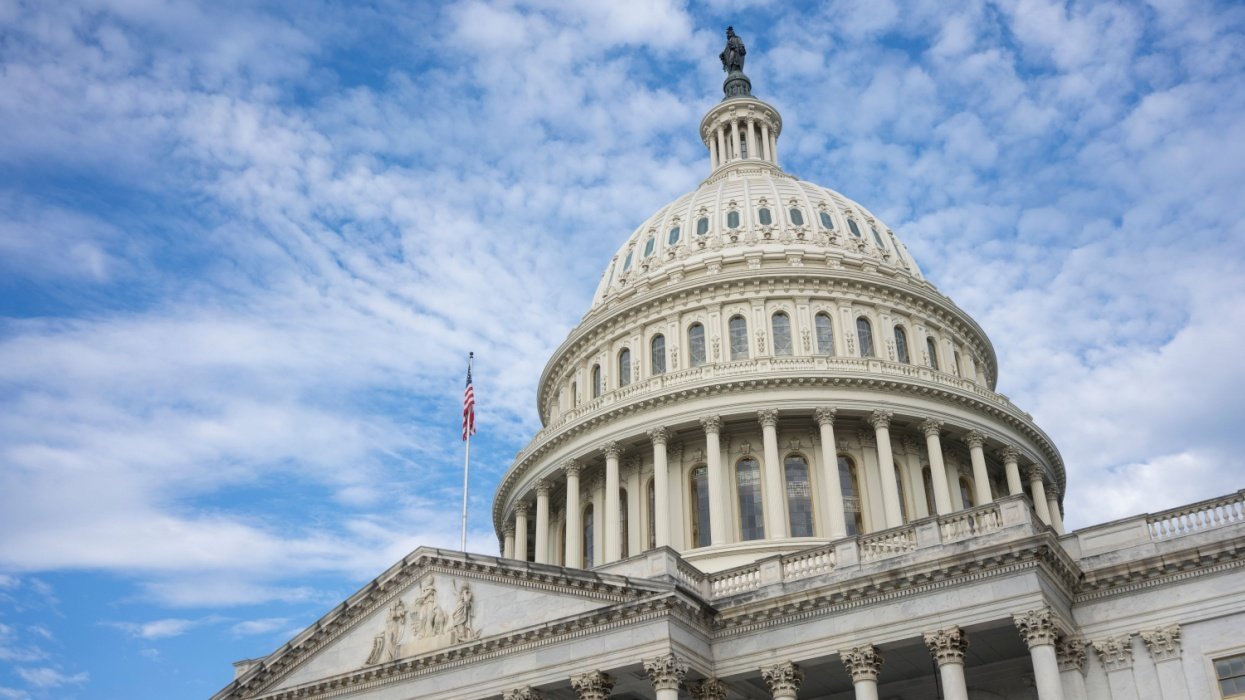Part of getting older is of course being more learned in the ways of life, particularly about how work and love affect your life. As I’ve gotten older, I’ve noticed that work and love don’t hum along smoothly at the same time, and that’s one of the reasons life is so challenging.
Keep up with the latest in LGBTQ+ news and politics. Sign up for The Advocate's email newsletter.
When I’ve done great things in my career, love was rocky. And when I felt love or thought I did, work stumbled along. It seemed an unachievable goal, getting work and love to hold hands and walk merrily and confidently forward in tandem.
For anyone who asks me, I always say the most difficult thing in life is finding your partner. There are millions of jobs but only one person you can spend your life with. Finding that person, though, can be like jumping from job to job until you land on one that’s just right; however, along the way, while jobs disappoint, love breaks hearts — and that can be brutal.
Some people get lucky and find love right away, with nary a tear. Others, regrettably, have tremendous difficulty finding love, while many fall in and out of love on a whim, exhilarated by the newness of romance. Then there are a few who couldn't care less about love.
I am not an expert in love, and I don’t really know anyone who is. Sure, I’ve been in 42 weddings in my life and have heard countless — and I do mean countless — stories of romance gone awry. But that doesn’t make me an authority. And I’ve been less than a stellar partner throughout my life. I’ve only truly loved one person and have had many misfires along the way.
If I ever become single again, I have zero desire to start dating again. I say that now, but the thought of trying to explain myself to someone new sounds exhausting, along with all of the other tasks that come along with integrating a special someone in your life. Am I cynical? Yes, to a fault, and I can’t really figure out why I’ve become that way.
I’m also cynical about dating shows — I’ll say that right up front. The drama around love, for anyone who is in it, seeks to find it, can’t find it, or has difficulty with it, doesn’t need the pretenses of a reality show with manufactured drama. Love is much more complicated than a television series.
But I also know that while I don’t like those shows, millions of people do, and it’s because of the very fact that love can be an aspirational drama. Who doesn’t dream of being swept off their feet by a millionaire bachelor or bachelorette? We can live vicariously through the show’s personalities, even if we do have love in our own lives.
Last weekend, I felt too lazy to search for a new series to dive into, so I just clicked on Netflix’s The Boyfriend, because my go-to, The Decider, said to stream it. The old, cynical me was ready to be prickly and judgmental about young guys trying to figure out love, or worse, thinking they know all about love. And I wasn’t disappointed.
The 20-somethings talking about their “type,” their erstwhile and limited experiences with love that made them instant experts about love. “Ha!” I would blurt out. “You have no idea what’s ahead of you, and what you're in for,” I kept repeating to no one in particular. “Wait until you hit 30, 40, or even 50, and you’re still trying to figure out who your “type” is and what love’s all about.”
At some point, as I started to be drawn into the show, I let my guard down. I began to sympathize with the cast members, rooting for them to find love among the group and egging on a few of them to couple up. Why the sudden change?
If you haven’t seen the show, it’s a Japanese reality show where more than half a dozen men in their 20s and 30s come together to live in a house in hope of finding that special someone. Sounds like a typical melodrama, right? But it was more than that.
Whether it was cultural or the authenticity of the men — well, to me, they're boys — the show provided a soft edge about the harsh realities of love and, more importantly, about the emotional aspects involved in dealing with love.
Too many reality dating reality shows hype the sexual tension among cast members — at least what I’ve read and heard about them. The contestants — after all, that's what they are — all seem to be handsome, pretty, buffed, and toned, with looks that most of us can’t relate to. The Boyfriendisn’t like Survivor, who will lose, orBig Brother, who will be evicted. It included just regular guys (there was a go-go dancer) with innocent objectives about finding their partner but finding themselves on the show as well and working with each other.
More about emotions and less about a quick lay. And more introspection about themselves than ogling over someone’s physique or Superman looks.
We live in an age of swipes, clicks on Bumble and Hinge, and instant sexual gratification on apps like Grindr and Sniffies. It’s all so abrupt. So impersonal. So calculating. We dismiss so quickly without giving thought to how the person on the other end feels. Send the wrong picture. Say the wrong thing. Or want something different, and you're canceled and deleted.
The Boyfriend gave me hope that the next generation dealing with life and love doesn’t need to be chronically online. There can be digital detox about life and love, and you can share and interact off the grid. And that hooking up isn’t the priority.
Two of the cast members left the show after they achieved their goals of being more emotive, and when they said goodbye to the cast, they shed bittersweet tears of joy. The go-go guy was always admired for his physique. He never was able to tell another man how he truly felt. He accomplished that, and rather than wear out his welcome, he departed.
Another did the same thing. They were able to show so much faith in themselves and confidence in what they had done, and it was a lesson in how every opportunity to meet and get to know someone, however fleeting, doesn’t have to involve sex, swiping left, or deleting a conversation. The feelings of affection and love can be quietly conveyed through a nerve-racking conversation.
They showed each other respect and kindness, even when their attempts to initiate romance with someone else were met with soft and sweet rejection. They cared about each other and one another’s feelings.
Again, maybe it was cultural; regardless, we all can learn a lot about the complexity — and simplicity — of love by paying close attention to the interactions on The Boyfriend. Love doesn’t need to be a reality competition. Love doesn’t need to be a web of profiles that can quickly be wiped away. Love doesn’t have to be so impersonal, so thoughtless, so dismissive.
Love will always be difficult. It will always hurt. But it doesn’t have to be so indifferent and cruel.
Voices is dedicated to featuring a wide range of inspiring personal stories and impactful opinions from the LGBTQ+ community and its allies. Visit Advocate.com/submit to learn more about submission guidelines. Views expressed in Voices stories are those of the guest writers, columnists, and editors, and do not directly represent the views of The Advocate or our parent company, equalpride.

















































































